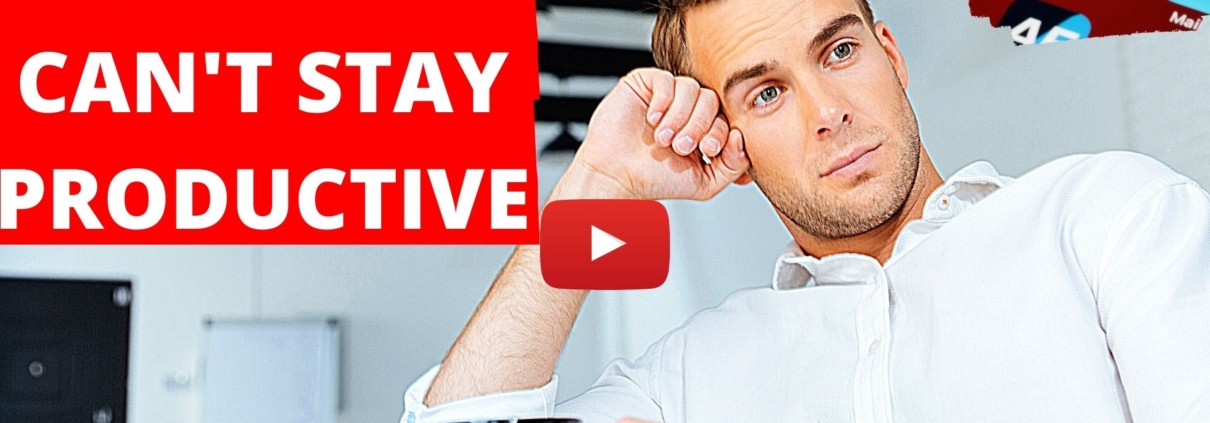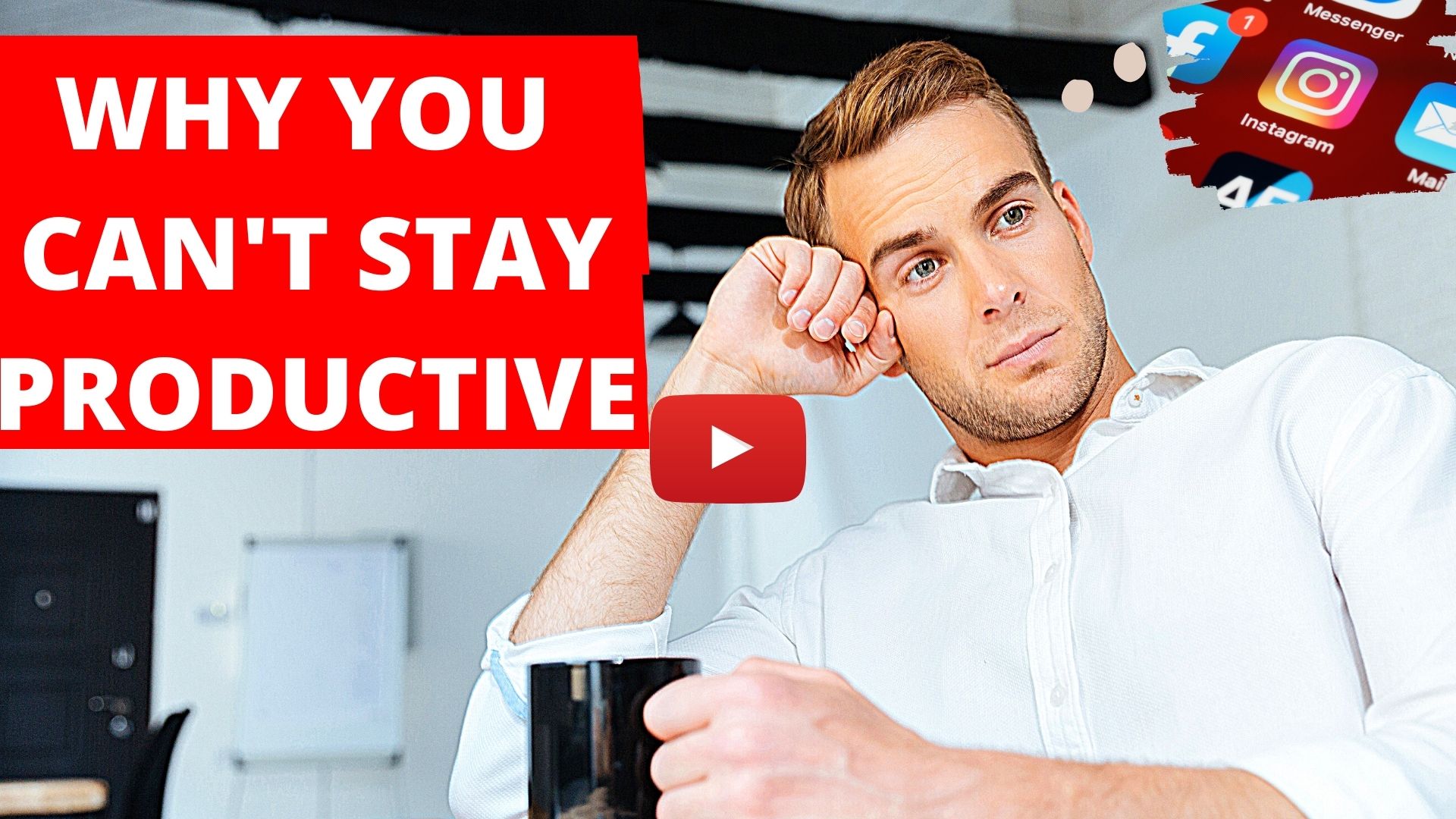VIDEO: Why You Can’t Stay Productive –Social Media & the Dopamine Reward Pathway
Do you have important things on your to-do list that you never seem to get to?
Do you seem to just run out of time each day or each week to work on them?
In this and upcoming videos, I’m going to show you why you can’t stay productive and what to do about it.
I bet you have number of things on your to-do list that you never seem to get to.
I bet these are projects or activities that are really important to you.
Maybe you set a goal to:
- start implementing a daily stress management strategy like meditation.
- start exercising after work each day
- write your first book
- Or maybe you set a goal to work on a side business so you can leave a job you hate.
But it just never happens. or at least not consistently.
You seem to just run out of time each day or each week.
You may wonder, “Where does the time go?” or “Why can’t I prioritize something so important to me?”
Prioritizing is getting harder and harder as technology advances.
We’re constantly bombarded with things competing for our attention:
- phone calls
- text messages
- emails
- social media updates, etc.
In this hyper-connected era, we are expected to respond instantly to many of these.
I too struggled with trying to stay productive.
I would have lofty goals that I never seemed to have the time to get to by the end of the week, and wonder where the time went.
I started to feel powerless and victimized.
I was constantly:
- checking my email
- responding to texts
- falling down the social media or Google search rabbit hole.
I wondered whether I had ADHD and just didn’t realize it until now.
I then woke up to what was going on.
No, I didn’t have ADHD. But being constantly distracted and feeling unable to stick with the tasks and goals you want to work on is not unlike having ADHD.
Turns out, every time you engage in your technology by doing things like checking email, texts, social media, and surfing the net, the dopamine reward pathway is activated in your brain.
Dopamine’s role in the brain is pretty complicated, but one of the things it controls is your motivation to seek out or search for things that are potentially rewarding or pleasurable.
Note I used the word “potentially”. The more unpredictable getting a reward or experiencing some pleasure is, the more the dopamine system kicks in.
And that makes you want to keep searching and checking.
Make no mistake, this mechanism in your brain is VERY STRONG.
All those text messages, emails, phone calls and such come at apparent random times, which enhances your dopamine response even more!
Psychologists discovered decades ago that the best way to control both animal and human behavior was through the use and timing of rewards.
They found that the best timing and frequency of providing rewards came when variable ratio schedules of reinforcement were used. Check the exact type of reinforcement
This is how slot machines work. You don’t hit the jackpot after a certain number of pulls or after a certain amount of time, you win after a changing number of pulls.
We now know that this is related to the dopamine response noted earlier.
And guess what? Checking email, texts, social media, and surfing the web reward us with a variable ratio schedule of reinforcement. So it’s no wonder we can’t get anything done!
You may have been told by your parents, spouse, or others who rarely use modern technology to simply “stop checking your phone!” While there is some wisdom here, it’s easier said than done.
It’s similar to an addiction. It’s not just about deciding not to check, because there are powerful brain mechanisms at play that are not under your full control.
The solution is NOT to rely on sheer willpower to resist the temptation to check.
Although willpower can be strengthened, it becomes weaker with use over the course of the day, and when we are tired or hungry.
So what’s the solution?
There are a number of strategies that I will cover in this and upcoming videos.





